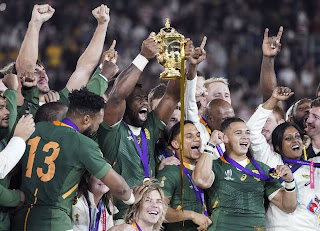The catastrophe looming for
OPEC is the deal to cut production..
OPEC and Russia will meet in
Doha on Thursday for another round of talks without ministers from Iran and
Iraq, the two countries that pose the biggest obstacle to a deal to cut
production.
Members of the Organization of
Petroleum Exporting Countries want to reach an agreement by the group’s Nov. 30
meeting in Vienna, Secretary-General Mohammed Barkindo said in an interview in
Marrakech, Morocco on Tuesday. Saudi Arabia, Iraq and Iran remain at odds over how to share output cuts, said an OPEC delegate, who asked not
to be identified because the information isn’t public.
According to World Watch
managing director if the agreement goes ahead then Saudi Arabia will lose
market share to Iran and possibly also to Iraq, there will be a shift in
regional influence in favor of Iran…
The latest round of diplomacy
reflects OPEC’s struggle to finalize the deal reached in Algiers on Sept. 28,
which would end a two-year policy of pumping without limits. More than 18 hours
of talks last month in Vienna failed to overcome internal disagreements, which in turn prevented a wider pact with
non-OPEC producers. Without an accord, the International Energy Agency
predicted a fourth consecutive year of oversupply in 2017.
Russia will hold informal
consultations with representatives of some OPEC countries at the Gas Exporting
Countries Forum in Doha on Nov. 17-18, the Energy Ministry in Moscow said in a
statement Tuesday. Khalid Al-Falih, the minister of energy and industry for
Saudi Arabia, which is not a member of the gas group, will join the talks, said
an OPEC delegate who asked not to be identified because the information isn’t
public.
Iraq has sought an exemption
from joining any production cuts, arguing that its fight against Islamic State
justifies special treatment. Iran has insisted it won’t accept any limits on
its production until it has returned to the pre-sanctions level of about 4
million barrels a day.
Saudi Requirements
OPEC pledged in Algiers to
bring its production down to a range of 32.5 million to 33 million barrels a
day, which compares with the group’s own output estimate of 33.6 million last
month. The group is also seeking cooperation from Russia and other producers outside
the group, although so far none have committed to curbing output.
Saudi Arabia, OPEC’s de-facto
leader, is ready to cut production, but only if the effort is built around four
pillars, said one delegate. All members must agree to collective action, pledge
to share the burden of cuts equitably, and do so in a way that is transparent
and has credibility with the market. The latter can be achieved by using OPEC
estimates of how much each member pumps, rather than relying on the countries’
own figures, the delegate said.
In practice, that means Saudi
Arabia still thinks Iraq needs to cut output and Iran has to freeze production
around current levels, Neither country has so far agreed to do that. For both
countries this will imply a revenue loss that will cause a severe blow to both
economies.
Three countries -- Libya,
Nigeria and Iran -- have been granted “special considerations” to implement the
Algiers accord,. Iraq is not among these members, he said.
In Libya and Nigeria,
production is still recovering after a spate of violence and militant attacks
targeted oil infrastructure. Iran has insisted it won’t accept any limits on
its production until it has returned to the pre-sanctions level of about 4
million barrels a day.
Iran should not accept present cuts as the sanctions might return, the reason…Trump is the elected US President and has stated that the agreements with Iran will be Re-viewed as soon as he takes office.
Iran should not accept present cuts as the sanctions might return, the reason…Trump is the elected US President and has stated that the agreements with Iran will be Re-viewed as soon as he takes office.
Saudi Arabia, Iraq and Iran
are the largest producers within OPEC, accounting for about 55 percent of the
group’s output, according to data compiled by WorldWatch.


No comments:
Post a Comment